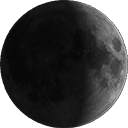Multiperiodic pulsations in the Be stars NW Serpentis and V1446 Aquilae
Author(s): Gutierrez-Soto, J.; Fabregat, J.; Suso, J.; et al.
Source: ASTRONOMY & ASTROPHYSICS Volume: 472 Issue: 2 Pages: 565-570 DOI: 10.1051/0004-6361:20077414 Published: SEP 2007
Aims. We present accurate photometric time series of two Be stars: NW Ser and V1446 Aql. Both stars were observed at the Observatorio de Sierra Nevada ( Granada) in July 2003 with an automatic four- channel Strmgren photometer. We also present a preliminary theoretical study showing that the periodic variations exhibited by these stars can be due to pulsation.
Methods. An exhaustive Fourier analysis together with a least- square fitting has been carried out on the time series for all four Strmgren bands. Several independent frequencies and non- periodic trends explain most of the variance. A theoretical non- adiabatic code applied to stellar models for these stars shows that g- modes are unstable.
Results. Both stars show rapid variations in amplitude, probably due to a beating phenomenon. Four significant frequencies have been detected for each star. Comparison of the observed amplitude ratios for each pulsational frequency with those calculated from theoretical pulsation codes allows us to estimate the pulsation modes associated with the different detected frequencies. NW Ser seems also to show unstable p- modes and thus could be one of the newly discovered beta Cephei and SPB hybrid stars. Further spectroscopic observations are planned to study the stability of the detected frequencies.






